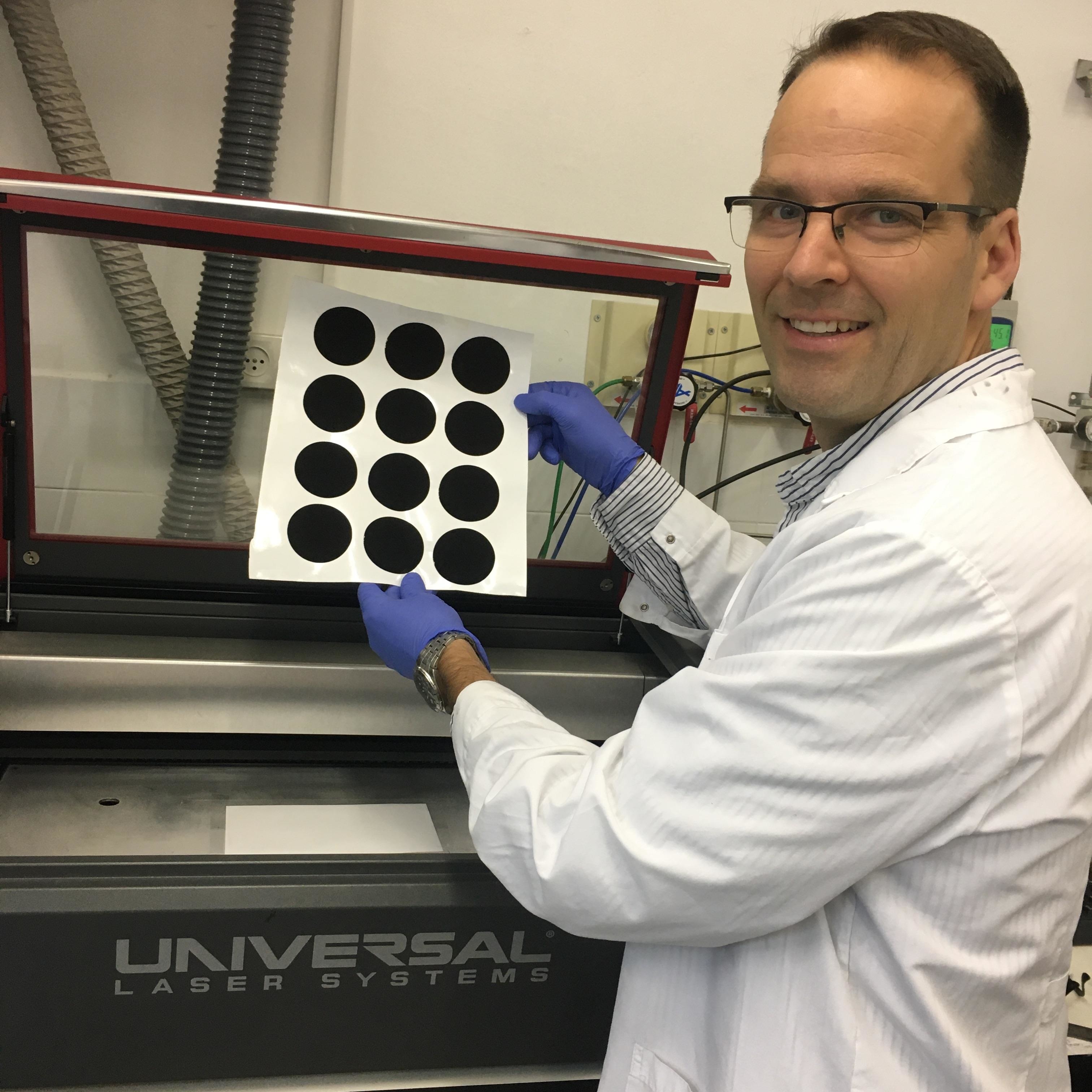With the worldwide focus on coronavirus prevention and transmission, a new type of air-filter that self-sterilizes and decontaminates is being developed at Ben-Gurion University of the Negev Israel based on water filtration technologies.
The new nanotechnology is derived from laser-induced graphene (LIG) water filters that eliminate viruses and bacteria in water. This new concept, once engineered for air-filtration, could be used in air filters in heating, ventilation and air-conditioning (HVAC) systems or integrated into face masks for a self-sterilizing effect. Most masks will become contaminated during use, including the N95 respirator mask.
LIG is a microporous graphene foam that can be generated on many types of materials. LIG on water filters provides active protection with simultaneous contamination removal and disinfection. The LIG is already resistant to bacteria and actively kills microbes and viruses using a low-level electric current from a power source. The researchers envision the two-fold protective system applied to air-filtration.
“The bacterial-resistant graphene surface protects against microorganisms so they can’t multiply, while the microbes trapped in the filter are eliminated by the electric current,” says inventor
Dr. Chris Arnusch (pictured below), senior lecturer and researcher at BGU's
Zuckerberg Institute for Water Research, part of the Jacob Blaustein Institutes for Desert Research.

Dr. Arnusch works on water purification by developing membranes with anti-bacterial and anti-viral properties. For the past five years, he has successfully applied this technology in water treatment applications.
“The material can be completely sterilized by electrical current, thus an LIG air filter has the potential to be combined with state-of-the-art air filtration such as HEPA filters. The filters could add an active layer of protection, as well as prolong the lifetime of the expensive HEPA technology. As a result, hospitals, cars, buildings and public transport could all become safer spaces.
“If such a material is incorporated into a mask a higher level of protection for medical providers, as well as the general population, could be possible,” says Arnusch.
Surgical masks are mainly designed to protect others, and can actually spread bacteria when they become moist or used improperly. An active LIG air filter in a mask would work during inhalation and exhalation, allowing protection for both the wearer and others in close contact, as well as eliminate the risks of handling a contaminated material.